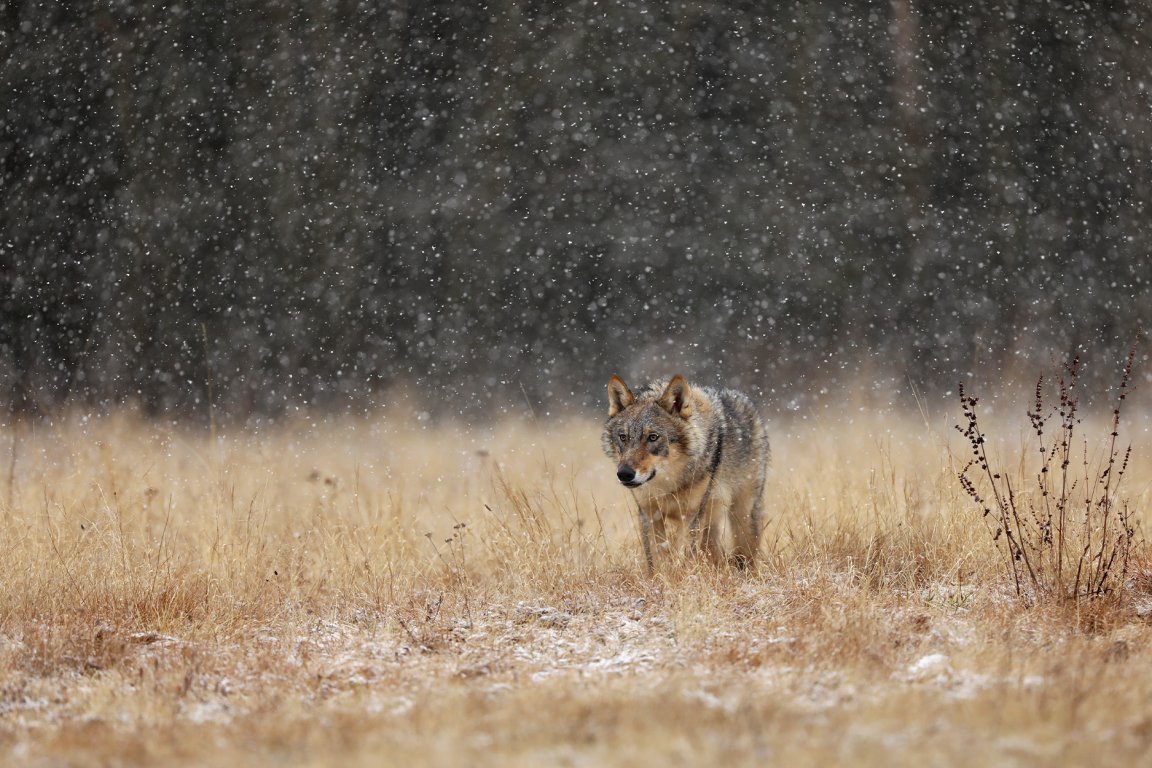While Colorado ranchers seek government compensation for cattle killed by reintroduced wolves, Swiss shepherds have a more direct protest: They have dumped carcasses of sheep killed by wolves in front of regional government buildings to signal their frustration with depredating canines.
A continent-wide spike in livestock predation blamed on wolves prompted the European Union this week to lower protections for the carnivores, making it easier for farmers and government agencies to kill both purebred wolves and a rising number of hybrid wolfdogs that prey on domestic animals.
That’s a stunning reversal of blanket protections that many EU leaders have supported, and which bolster a larger “rewilding” movement in Europe. These protections have allowed wolves, along with brown bears, foxes, badgers, and lynx, to thrive and spread across the landscape, moving out of designated wildlands and into fields and pastures and even the margins of some of Europe’s largest cities.
This week’s decision to lift protections on wolves also follows the high-profile death of a pony that belonged to the president of the European Commission and was killed by wolves two years ago in northern Germany. France reports the most livestock killed by wolves, around 11,000 sheep annually.
An EU committee responsible for continental wildlife conservation removed the “strict protection” status of Europe’s wolves on Tuesday under the Bern Convention. The rule change allows wolf packs that prey on domestic livestock to be culled without special review and could open the way for nations to establish wolf hunting seasons.
Wolves have become so abundant across Europe that they are classified as a species of “least concern” by the International Union for the Conservation of Nature. An estimated 20,000 wolves roam the continent, from Scandinavia and the Balkan low country to the forests of Romania and Italy’s Alps. The same committee reckons that wolves kill around 65,000 domestic livestock every year.

Compare the European body count to that in Colorado, where wolves have killed an estimated two to three dozen cattle since the predators were reintroduced there last year following a 2020 ballot initiative that required the state to bring back wolves that had been absent from Colorado for nearly a century. The state is now working with Canadian provinces to supplement the initial release with another 15 wolves, perhaps as early as next month.
The total number of livestock killed by Colorado’s restored wolf population is a guess, say ag groups, because some ranchers haven’t yet submitted claims for reimbursement and other livestock deaths can’t be directly attributed to wolf predation. Many ranchers note that the impact of wolves on their herds is also reflected in lower weaning weights, mangled fences, and altered grazing patterns.
Read Next: As Wolf Management Debate Reaches a Fever Pitch, the Interior Department Hires a National Mediator
But while Colorado’s wolves (both the animals relocated from Oregon and those that have entered naturally from Wyoming) are presumably genetically pure wild canines, Europe’s wolf management is complicated by a rising number of wolf-dog hybrids. These hybrids are more adaptable to Europe’s fractured landscapes, say biologists, but they frustrate conservationists interested in restoring truly wild wolf packs to the continent. The new European Commission rule will allow local culling of wolf and wolfdog packs that demonstrate a taste for domestic animals.
That should mollify the Swiss shepherds who this summer dumped a dozen wolf-killed sheep carcasses in front of the regional government headquarters of Lausanne, a canton in western Switzerland. According to The Guardian, sheep producers wanted to increase pressure on the region’s environment minister and the ruling Green Party.
“It is really time to act,” Eric Herb, a member of a Swiss group advocating for controls of marauding wolves, told the newspaper. “The [sheep] breeders have played nice until now, but this time it was too much.”
